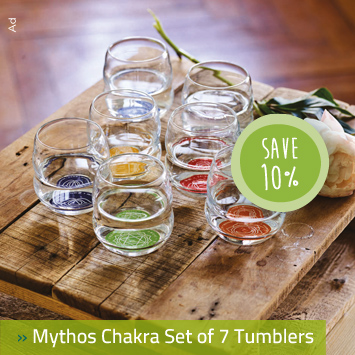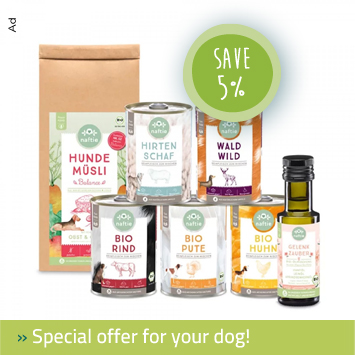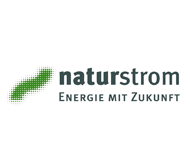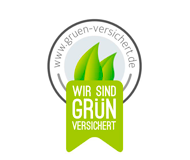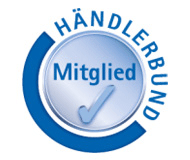Raw material from organic farming
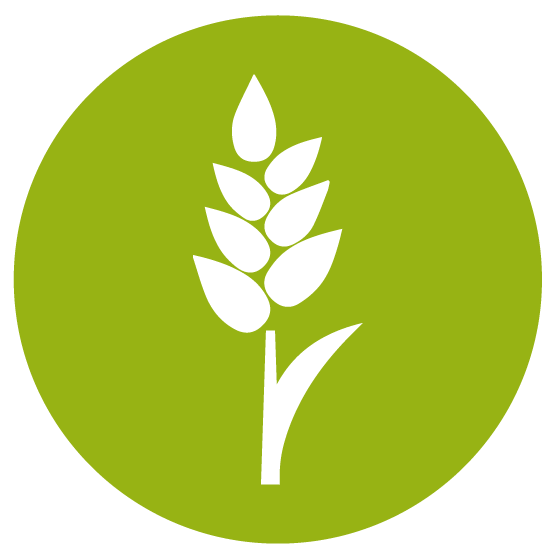 Waiver of chemical pesticides and fertilizers, no genetic engineering, species-appropriate animal husbandry.
Waiver of chemical pesticides and fertilizers, no genetic engineering, species-appropriate animal husbandry.
For the sustainable production of products origin and the way of the extraction of raw materials is of crucial importance.
This criterion is relevant for products from most different categories. This is because raw materials from organic farming are being used in foods, natural cosmetics, clothing, textiles (e.g. bags), cleaning products for household, furniture and home accessories.
What is meant by organic farming?
In organic farming raw materials of high quality are obtained by means of nature-friendly production methods - taking account of the perceptions of ecology and environmental protection. In contrast to conventional farming methods in ecological cultivation plant protection, soil fertility, conservation of biodiversity and ecosystems, purity of soil and water and a minimized impact on the climate have priority.
The approach to achieve the most closed loop operation is pursued. Principles are the support of useful plants, a site-adapted choice of species and varieties, timely and careful tillage and organic fertilization as well as a varying crop rotation. For fertilization in-house plant and animal wastes are recycled, nitrogen collecting legumes are cultivated and organic or natural forms of mineral fertilizers are used.
A distinction is made between the biodynamic agriculture according to Rudolf Steiner (founder of anthroposophy), which is used by the Demeter Association, and the organic-biological agriculture, which originated in the life-reform movement of the 1920s.
Raw materials from organic farming are not only of high quality, their production also contributes to environmental and climate protection and the preservation of ecosystems and biodiversity.
The legal basis for organic farming is the EC-Eco-Regulation. The requirements out of this are:
- Waiver of synthetic chemical pesticides and mineral fertilizers
- Species-appropriate animal husbandry
- Protection of soil and water
- Prohibition of green genetic engineering and irradiation
Compliance with these requirements will be reviewed by independent and government-approved boards of control.
How can you make out that the requirements of the EC-Eco-Regulation were met?
At European level since 2010 the EU eco label (curved bio-sheet with twelve stars) marks products made from raw materials from organic farming.
In Germany the national eco label "Bio-Siegel" was introduced in 2001. Products and foodstuffs marked with the eco label are being produced and inspected to EU legal regulations for organic farming.
Most German producers of ecological raw materials have come together in associations. While some organisations are represented nationwide or even worldwide, do others carry rather regional weight. The guidelines of the German farming associations are much stricter than the EC-Eco-Regulation. Each plant has to be recertified every year. Furthermore there are analyses and inspections of manufacturers and distributors. The trademarks of the organic farming associations offer customers the largest product safety.
The main farming associations in Germany are: Biokreis, Bioland, Biopark, Demeter, Ecoland, Association of ecologically economizing vintner, Gäa – Federation of Organic agriculture, Naturland – Association for Organic Agriculture.
In Switzerland Bio Suisse is the largest farming organisation, in Austria it is Bio Austria.
For products of natural cosmetics there are several labels of quality to certify the criterion raw materials from organic farming. In first place is "Certified Natural Cosmetics" by BDIH. This seal indicates cosmetics made from natural raw materials. Plant-based materials should be from controlled biological cultivation or controlled biological wild collection. More and more the international label NaTrue is disseminated, which guarantees natural and organic ingredients.
In the field of natural textiles and clothing, the specification "k.b.A." (controlled biological cultivation) gives information on the raw material origin. Safety gives the label Global Organic Textile Standard (GOTS).
On furniture the "FSC" label of the Forest Stewardship Council (FSC) marks wood and timber products from sustainable forestry.
Disclaimer
Please note that the English version of the criterion “Raw materials from organic farming” is only a translation of the German criterion “Raw materials from organic farming”. The translation has been made to the best of the translator’s knowledge and belief. The German version of the criterion “Raw materials from organic farming” always prevail shall in case of doubt.
« back to sustainability criteria



